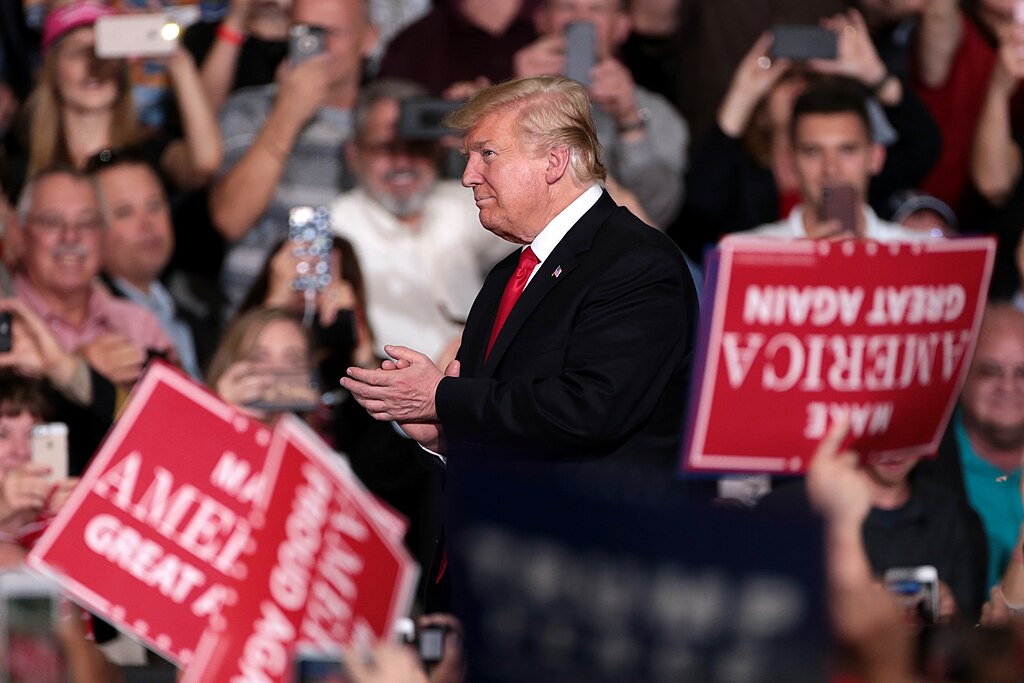President-elect Donald Trump has announced a dramatic shift in U.S. foreign aid policies for 2025, emphasizing an “America First” strategy. The plan focuses on reducing spending on international programs while redirecting resources to domestic priorities and select nations deemed strategically beneficial to U.S. interests.
Trump’s transition team released details of the proposal this week, which includes significant cuts to humanitarian aid and a reevaluation of funding to multilateral organizations like the United Nations. While supporters view the move as a bold effort to ensure taxpayer dollars serve Americans first, critics argue it could harm global stability and America’s diplomatic influence.
Key Changes to U.S. Foreign Aid
The cornerstone of Trump’s foreign aid policy is cutting funding to countries that fail to align with U.S. economic and security interests. The administration plans to tie aid directly to measurable outcomes, focusing on nations that demonstrate clear alignment with American values and strategic goals.
One major shift involves reducing aid to programs addressing climate change. Trump has reiterated his stance that funding for such initiatives detracts from more pressing concerns, including bolstering national defense and supporting American workers. Additionally, the plan calls for a 20% reduction in contributions to the United Nations, citing inefficiencies within the organization.
Conversely, Trump aims to boost aid to nations like Israel and select allies in the Indo-Pacific region to counterbalance China’s growing influence. Increased military aid and economic incentives are expected to form the backbone of these partnerships.
Mixed Reactions Spark Heated Debate
The announcement has sparked a firestorm of reactions, with opinions sharply divided on social media. While some applaud Trump’s focus on accountability, others warn of dire consequences for global health, education, and security programs.
- @GlobalPolicyGuru: “Cutting aid is short-sighted. Global problems don’t disappear because we ignore them—they just land at our doorstep.”
- @AmericaFirstNow: “Finally, a president prioritizing Americans! Why should we send billions overseas while our own people struggle?”
- @UNAdvocate2025: “Reducing funding to the UN undermines global cooperation. This will hurt America’s reputation and its allies.”
- @EconomicPatriot: “Foreign aid must be earned, not handed out. Trump is right—our money should work for us.”
- @ClimateActionHero: “Trump’s cuts to climate programs are reckless. The environment is a global issue requiring global solutions!”
- @SecurityStrategist: “Strategic aid to allies like Israel is essential, but slashing humanitarian funds is a recipe for instability.”
Concerns Over Global Stability
Experts warn that Trump’s policies could have far-reaching implications. Humanitarian groups caution that cuts to global health and education programs may exacerbate poverty and lead to instability in fragile regions. Additionally, critics argue that reducing contributions to multilateral organizations like the UN could weaken America’s leadership in addressing global crises.
Supporters of Trump’s approach contend that aid should not be a “blank check” for uncooperative nations. By tying funds to accountability and strategic benefits, they argue, the U.S. can ensure its investments yield tangible results.
As the administration prepares to implement these changes in January, Congressional approval remains a potential hurdle. Bipartisan resistance could challenge Trump’s plans, particularly as lawmakers weigh the long-term consequences of reduced global engagement.



 U.S. Lawmakers Question Trump’s Iran Strategy After Joint U.S.-Israeli Strikes
U.S. Lawmakers Question Trump’s Iran Strategy After Joint U.S.-Israeli Strikes  U.S.-Israel War on Iran Escalates as Gulf Conflict Disrupts Oil, Air Travel and Regional Security
U.S.-Israel War on Iran Escalates as Gulf Conflict Disrupts Oil, Air Travel and Regional Security  Russia Signals Openness to U.S. Security Guarantees for Ukraine at Geneva Peace Talks
Russia Signals Openness to U.S. Security Guarantees for Ukraine at Geneva Peace Talks  U.S. Deploys Tomahawks, B-2 Bombers, F-35 Jets and AI Tools in Operation Epic Fury Against Iran
U.S. Deploys Tomahawks, B-2 Bombers, F-35 Jets and AI Tools in Operation Epic Fury Against Iran  Marco Rubio to Brief Congress After U.S.-Israeli Strikes on Iran
Marco Rubio to Brief Congress After U.S.-Israeli Strikes on Iran  Trump Says U.S. Attacks on Iran Will Continue, Warns of More American Casualties
Trump Says U.S. Attacks on Iran Will Continue, Warns of More American Casualties  Israel Launches Fresh Strikes on Iran After Death of Supreme Leader Ayatollah Khamenei
Israel Launches Fresh Strikes on Iran After Death of Supreme Leader Ayatollah Khamenei  Suspected Drone Strike Hits RAF Akrotiri Base in Cyprus, Causing Limited Damage
Suspected Drone Strike Hits RAF Akrotiri Base in Cyprus, Causing Limited Damage  Trump’s Iran Strikes Spark War Powers Clash in Congress
Trump’s Iran Strikes Spark War Powers Clash in Congress  Rubio Says U.S. Would Not Target School After Deadly Iran Strike Reports
Rubio Says U.S. Would Not Target School After Deadly Iran Strike Reports  Trump to Attend White House Correspondents’ Dinner 2026, Ending Long Boycott
Trump to Attend White House Correspondents’ Dinner 2026, Ending Long Boycott  UK Accepts U.S. Request to Use British Bases for Defensive Strikes on Iranian Missiles
UK Accepts U.S. Request to Use British Bases for Defensive Strikes on Iranian Missiles  Trump Launches Operation Epic Fury: U.S. Strikes on Iran Mark High-Risk Shift in Middle East
Trump Launches Operation Epic Fury: U.S. Strikes on Iran Mark High-Risk Shift in Middle East  Iran Detains U.S. Citizens Amid Escalating Conflict With the United States and Israel
Iran Detains U.S. Citizens Amid Escalating Conflict With the United States and Israel  Zelenskiy Urges Change in Iran After U.S. and Israeli Strikes, Cites Drone Support for Russia
Zelenskiy Urges Change in Iran After U.S. and Israeli Strikes, Cites Drone Support for Russia  AI is already creeping into election campaigns. NZ’s rules aren’t ready
AI is already creeping into election campaigns. NZ’s rules aren’t ready 
































